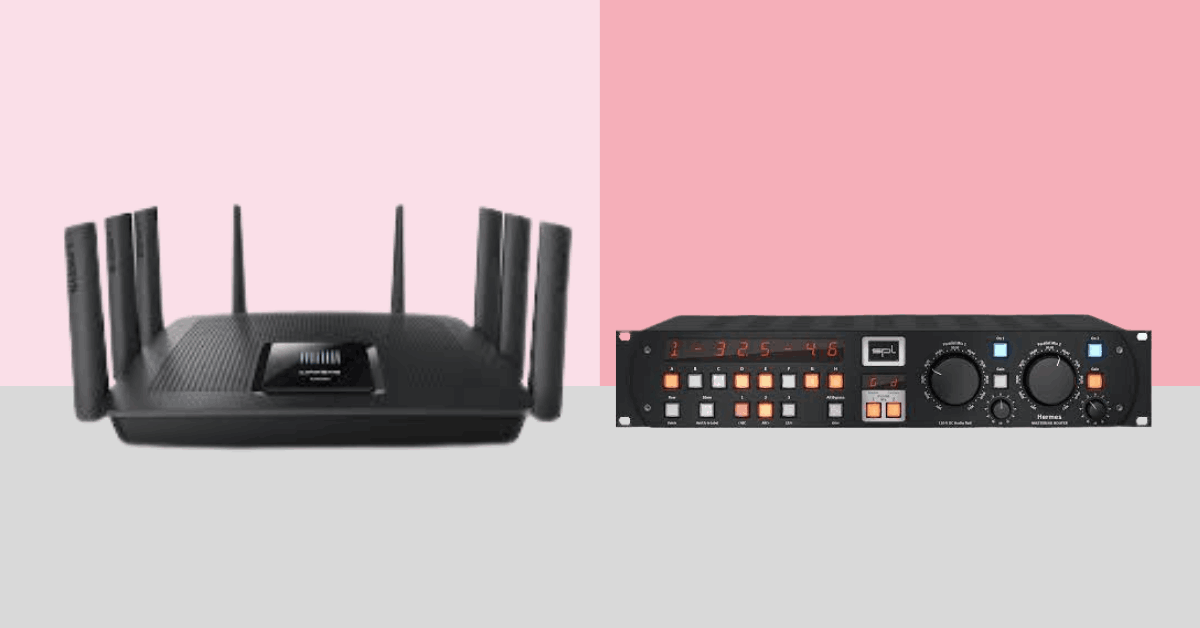Functions and Features:
- Routing: Routers use routing tables to determine the best path for data packets to travel from source to destination. They make decisions based on IP addresses and other factors, ensuring efficient data flow.
- Network Address Translation (NAT): NAT allows multiple devices in a local network to share a single public IP address. This conserves the limited pool of available IP addresses and enhances security by obscuring internal addresses from the internet.
- Firewall: Many routers incorporate firewalls to safeguard the network from unauthorized access and potential cyber threats. These firewalls can be configured to block or permit specific types of traffic based on predefined rules.
- Wireless Connectivity: Wireless routers offer Wi-Fi capabilities, enabling devices to connect without physical cables. They provide SSIDs (network names) and security settings for device connections.
- Port Forwarding: Routers can be set up to forward specific incoming data packets to particular devices or services within the local network. This is useful for hosting servers or services that need external access.
- Quality of Service (QoS): QoS settings prioritize specific types of network traffic, ensuring optimal performance for activities like video streaming, online gaming, and VoIP calls.
- Guest Network: Some routers support the creation of separate guest networks. This offers internet access to visitors while isolating them from the main local network for security reasons.
- Parental Controls: Routers often feature parental control options that restrict internet access or set time limits for specific devices or users.
- Firmware Updates: Regular firmware updates are critical for routers to fix bugs, improve security, and introduce new features. Keeping the router’s firmware up to date is essential for maintaining a secure network.
- VPN Support: Certain routers offer VPN support, enabling users to establish secure connections to remote networks for enhanced privacy and security.
- Dual-Band and Tri-Band: Modern routers support multiple wireless bands (2.4GHz and 5GHz), resulting in better performance and reduced interference in crowded environments.
- Gigabit Ethernet Ports: Routers come with Ethernet ports that support various speeds, including Gigabit Ethernet (up to 1 Gbps), for wired connections to devices like computers, gaming consoles, and smart TVs.
- Mesh Networking: Mesh routers consist of interconnected nodes that provide extended Wi-Fi coverage across larger areas. This is particularly beneficial for sizable homes or offices.
Types of Routers:
- Home Routers: Designed for residential use, home routers are used to connect devices to the internet and each other. They often come with a variety of features tailored to the needs of households.
- Enterprise Routers: Geared toward larger corporate networks, enterprise routers are more robust and offer advanced features to manage high volumes of network traffic and provide enhanced security.
- Wireless Mesh Routers: These routers are designed to establish a seamless Wi-Fi network across larger spaces using multiple interconnected nodes. They eliminate dead zones and ensure consistent coverage.
- Mobile Routers: Mobile routers, also known as portable hotspots, utilize cellular networks to provide internet access. They are commonly used while traveling and in areas with limited fixed-line connectivity.
Security Considerations:
- Security: The default login and password of your router should always be changed to stop illegal access.
- Enable encryption: To protect wireless communication on your Wi-Fi network, use strong encryption (WPA3).
- Update the firmware: Update the firmware on your router regularly to safeguard against known vulnerabilities.
- Disable Remote Management: To prevent illegal internet access, turn off your router’s remote management feature.
- Firewall and Security Settings: Set up the router’s firewall settings and other security features.
- Guest Network Management: Establish a guest network, if supported, to separate visitor devices from your primary network.
- Strong Administrator Password: For router administration, use a strong password to prevent unwanted modifications.
Conclusion:
Routers are the backbone of modern networking, facilitating communication between devices and networks. Their diverse functions and features cater to a range of needs, from basic internet connectivity at home to complex networking solutions in enterprises. Understanding the various types of routers and their capabilities empowers users to make informed decisions about their networking requirements. By implementing security measures, keeping firmware updated, and optimizing settings, users can ensure a smooth and secure network.
FAQs:
Q1: Can I use any router with my internet service provider (ISP)?
A1: In most cases, yes. However, some ISPs might require specific router configurations or provide routers as part of their service. It’s advisable to check with your ISP for compatibility information.
Q2: How do I secure my router?
A2: You can secure your router by setting a strong password for accessing the router’s settings, enabling WPA3 encryption for Wi-Fi, disabling remote administration, and regularly updating the router’s firmware.
Q3: Can I connect wired devices to a wireless router?
A3: Yes, most wireless routers come with Ethernet ports that allow you to connect wired devices like computers, gaming consoles, and smart TVs for a more stable connection.
Q4: What’s the difference between 2.4GHz and 5GHz Wi-Fi bands?
A4: The 2.4GHz band offers greater coverage but may suffer from more interference, while the 5GHz band provides faster speeds but over a shorter range. Dual-band routers let you choose between the two based on your device’s capabilities.
Q5: Why do I need a VPN on my router?
A5: Setting up a VPN on your router encrypts all internet traffic from devices connected to the router. This enhances your online privacy and security, particularly when using public Wi-Fi networks.
Q6: How do mesh routers work?
A6: Mesh routers consist of a main router and satellite nodes. The nodes communicate with each other, creating a network that ensures seamless coverage in large spaces without dead zones.
Q7: Can I use a router as a range extender?
A7: Some routers have a “bridge” or “repeater” mode that allows them to extend the range of an existing Wi-Fi network. However, dedicated range extenders or mesh routers are often more effective for this purpose.
Check Price